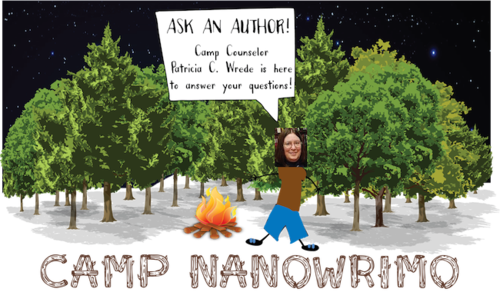Ask An Author: "How do you write a convincing villain?"

Each week, a new author will serve as your Camp Counselor, answering your writing questions. Patricia C. Wrede, our third counselor, is the much-loved author of the Enchanted Forest Chronicles, and has just published a book for aspiring authors called Wrede on Writing :
How do you write a convincing villain? — Anonymous
The same way you write any character convincingly—by making their dialogue, actions, reactions, and motivations realistic and convincing. The writer has to understand the villain just as thoroughly as he/she understands the main characters. If the writer doesn’t believe that any reasonable, rational person would do whatever evil thing the villain is doing, the villain will most likely come off as a cardboard evil stereotype, or else as insane.
This works for some books, but in many cases, you have to start by asking “Why would a reasonable, rational person kick puppies?” (or whatever it is), and work until you figure out a believable reason.
The next step is getting more of that into the story. This is often harder to do with villains than with other characters, because the villain usually spends less time “on stage” than your main characters. If it’s a multiple-viewpoint book and you can include the villain as a viewpoint character without spoiling a mystery or lessening suspense, that’s one possibility.
In books where the villain can’t be a viewpoint character, you have to keep the villain’s ideas and motivations in mind during any scene the villain appears in (it can help to write the scene from the villain’s viewpoint first, and then rewrite it from the actual viewpoint character’s, though this is more work than some folks like to do).
You also have to keep an eye out for opportunities to reveal to your heroes what the villain’s motives are. One of the most effective things, if you can swing it, is to have the hero make a discovery at some point that makes him seriously wonder if the villain is right, so that the hero has to consider the villain’s actions carefully and almost (but not quite) switch sides. This, too, is not suitable for every story.
Next week’s final Camp Counselor will be Michael David Lukas, author of historical novel The Oracle of Stamboul.
Chris Baty's Blog
- Chris Baty's profile
- 63 followers



